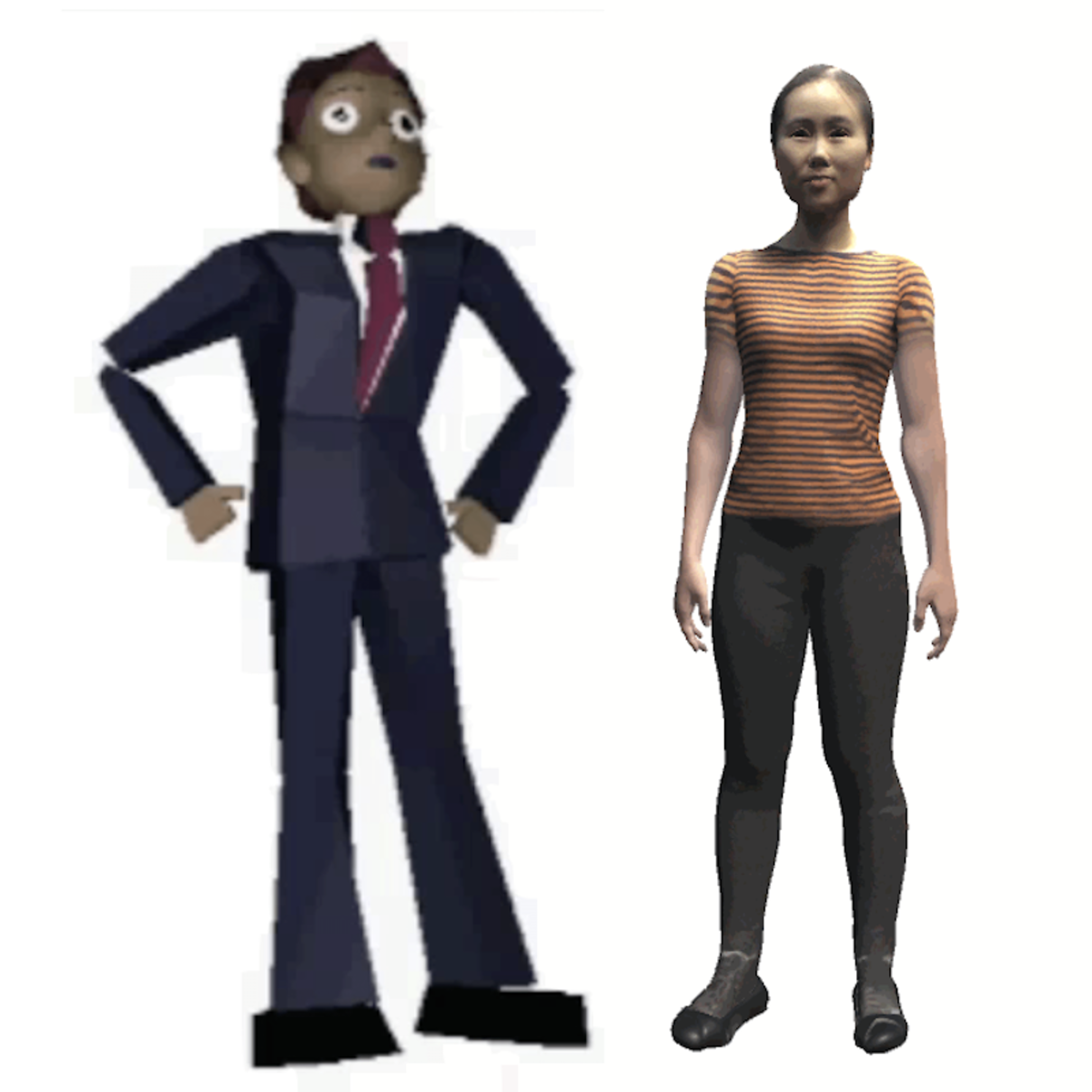Technical Director
Technical Director: A Career Exploration
A Technical Director (TD) serves as a crucial link between creative vision and technical execution. They are leaders who possess a deep understanding of technology within their specific field, guiding teams to bring complex projects to life. Whether in theatre, film, software development, or manufacturing, the TD ensures that the technical aspects align perfectly with the overall goals, budget, and timeline.
Working as a Technical Director can be incredibly rewarding. You might find yourself solving intricate technical puzzles under pressure, collaborating closely with diverse teams of artists and engineers, or shaping the technological strategy of major projects. The role often involves staying ahead of the curve, constantly learning and implementing cutting-edge tools and techniques.
Overview of Technical Director Roles
Understanding the scope and variations of the Technical Director role is the first step in exploring this potential career path. It's a position defined by technical leadership and strategic oversight.
What is a Technical Director?
At its core, a Technical Director is responsible for the technical operations within a specific context. This often involves managing technical staff, overseeing equipment and infrastructure, planning and executing technical aspects of projects, and ensuring everything runs smoothly, safely, and efficiently. They translate artistic or business requirements into technical specifications and actionable plans.
The TD acts as the primary technical advisor, troubleshooting complex issues and making critical decisions about technology adoption and implementation. Their purpose is to ensure the technical feasibility and success of a project or production, acting as a bridge between different departments like design, engineering, operations, and management.
This role requires a unique blend of deep technical knowledge, strong leadership abilities, and excellent communication skills. They must understand both the big picture strategy and the minute details of execution.
Industries Employing Technical Directors
Technical Directors are vital in numerous sectors. In the entertainment industry (film, television, video games, theatre, live events), TDs manage the technical elements of productions, from visual effects and animation pipelines to stage lighting and sound systems.
Software development companies often employ TDs (sometimes with varying titles) to oversee development processes, architecture, and technical standards. In manufacturing and engineering, they might lead technical teams, manage R&D projects, or oversee the technical aspects of production lines. Broadcast media also relies heavily on TDs for managing studio operations and live transmissions.
The specific responsibilities can vary significantly based on the industry. For example, a TD in gaming needs expertise in game engines like Unreal or Unity, while a TD in theatre requires knowledge of stage mechanics, lighting consoles, and sound reinforcement.
To gain foundational knowledge relevant to specific software used in industries like game development or visual effects, consider exploring dedicated learning paths.
These books offer insights into software and practices relevant to visual design and theatre production, areas where Technical Directors often operate.
Technical Director vs. Similar Roles
It's common to confuse the Technical Director role with others like Chief Technology Officer (CTO) or Engineering Manager. While there can be overlap, key distinctions exist. A CTO typically focuses on the company's overall long-term technology strategy, vision, and external technological positioning.
An Engineering Manager often concentrates on managing a specific engineering team's performance, personnel development, and project execution within their domain. The Technical Director, however, usually has a more project- or production-centric focus, dealing with the immediate technical challenges and implementation details required to achieve specific creative or operational goals.
In smaller organizations, one person might wear multiple hats, blurring these lines. However, in larger companies, the TD is generally more hands-on with project execution technology compared to a CTO and may have broader cross-departmental technical oversight than an Engineering Manager focused on a single team.
Global Variations
The title and specific duties of a "Technical Director" can differ internationally. In some regions or industries, similar responsibilities might fall under titles like "Technical Manager," "Head of Technology," "VFX Supervisor," or "Broadcast Engineer." Cultural differences and industry maturity also influence the scope of the role.
For instance, the emphasis on specific technical skills versus managerial duties can vary. It's advisable for individuals considering this career path to research the common titles and role expectations within their target geographic region and industry.
Understanding these nuances is important for navigating the global job market and setting appropriate career expectations.
Roles and Responsibilities of a Technical Director
The day-to-day work of a Technical Director is dynamic and multifaceted, involving a blend of technical expertise, leadership, and strategic planning.
Technical Leadership and Collaboration
A primary function of the TD is leading technical teams. This involves assigning tasks, providing guidance, mentoring staff, and fostering a collaborative environment. They ensure the team has the necessary resources and skills to meet project demands.
TDs rarely work in isolation. They constantly collaborate with other departments – creative teams, producers, project managers, operations staff, and sometimes clients or external vendors. Effective communication is key to translating creative visions into technical realities and ensuring alignment across all stakeholders.
They often serve as the main point of contact for all technical matters related to their project or department, requiring them to articulate complex technical information clearly to non-technical colleagues.
Courses focusing on leadership can help develop the necessary skills to manage technical teams effectively.
Strategic Technology Planning
Technical Directors are involved in strategic decision-making regarding technology. This includes evaluating new tools, software, hardware, and workflows, assessing their potential benefits and risks, and planning for their integration.
They develop technical roadmaps and strategies that align with the project's or organization's long-term goals. This might involve planning infrastructure upgrades, adopting new development methodologies, or implementing systems for better efficiency and quality.
Staying informed about technological advancements is crucial. TDs must anticipate future needs and ensure their teams and systems are prepared for upcoming challenges and opportunities.
Budgeting and Resource Management
Managing technical budgets is often a key responsibility. TDs must estimate costs for equipment, software licenses, staffing, and other technical expenses. They track spending and ensure projects stay within financial constraints.
Resource allocation involves deciding how best to use available personnel, equipment, and time. This requires careful planning and prioritization to maximize efficiency and meet deadlines without compromising quality or safety.
Negotiating with vendors for equipment purchases or service contracts may also fall under the TD's purview. Strong negotiation and financial management skills are valuable assets in this aspect of the role.
Ensuring Compliance and Standards
Technical Directors are responsible for ensuring that all technical operations adhere to relevant industry standards, safety regulations, and legal requirements. This could involve compliance with broadcasting standards, software development best practices, or workplace safety protocols in a theatre or manufacturing setting.
They often establish and enforce internal technical standards and documentation practices to maintain quality, consistency, and safety. This includes overseeing quality assurance processes and ensuring that technical documentation is thorough and up-to-date.
Depending on the industry, specific certifications or knowledge of standards frameworks like ISO might be necessary.
Understanding quality management systems can be beneficial, especially in lab or manufacturing environments.
High-Stakes Problem Solving
When technical problems arise, especially critical ones that threaten project timelines or outcomes, the Technical Director is often the final point of escalation. They need strong analytical and troubleshooting skills to diagnose complex issues quickly and devise effective solutions.
This can involve anything from debugging complex code and resolving network failures to fixing malfunctioning stage equipment during a live performance or addressing unexpected visual effects glitches before a film deadline. The ability to remain calm under pressure is essential.
TDs must often make difficult decisions with incomplete information, balancing technical purity, budget constraints, and deadlines to find the most practical way forward.
Core Skills and Qualifications
Becoming a successful Technical Director requires a robust combination of technical mastery, leadership acumen, and industry-specific knowledge.
Technical Expertise
Deep technical proficiency in the relevant field is non-negotiable. For a software TD, this means expertise in programming languages, system architecture, cloud platforms (Cloud Computing), and development methodologies. For an entertainment TD, it could involve mastery of specific software like Houdini or Maya, understanding rendering pipelines, or intricate knowledge of lighting and sound systems.
This expertise isn't static; TDs must continuously learn to keep pace with technological evolution. The specific technical skills required will vary greatly depending on the industry – from network protocols in broadcasting to materials science in manufacturing.
Foundational understanding of related technical areas is also beneficial. For instance, a theatre TD benefits from understanding basic electronics, while a VFX TD benefits from knowing cinematography principles.
Leadership and Management
Technical Directors lead teams, manage projects, and allocate resources. Strong leadership skills are essential for motivating teams, resolving conflicts, and guiding technical direction. Project management skills, including planning, scheduling, risk assessment, and budget oversight, are critical for delivering projects successfully.
Familiarity with methodologies like Agile or Scrum is often expected, particularly in software and game development. Certifications in project management (like PMP or PRINCE2) or specific technical areas can enhance credibility but are not always mandatory, especially if backed by strong experience.
Effective decision-making, strategic thinking, and the ability to delegate tasks appropriately are all hallmarks of a capable technical leader.
Communication and Stakeholder Management
Technical Directors must communicate complex technical ideas clearly to diverse audiences, including non-technical managers, creative artists, clients, and junior team members. Excellent verbal and written communication skills are vital.
Managing relationships with stakeholders – understanding their needs, managing expectations, and reporting progress – is a key part of the role. This requires diplomacy, negotiation skills, and the ability to build trust and rapport.
Presenting technical plans or problem analyses convincingly is often required. Whether in a team meeting or an executive briefing, clarity and confidence in communication are crucial.
Industry-Specific Knowledge
Beyond general technical and leadership skills, deep knowledge of the specific industry is indispensable. A TD in game development needs to understand game engines, asset pipelines, and platform requirements. A TD in live events needs expertise in audio-visual technology, staging, and show control systems.
This includes understanding the creative process, the business context, common workflows, and the specific challenges and opportunities within that field. This domain knowledge allows the TD to make informed technical decisions that truly support the project's goals.
For example, familiarity with specific tools like NDI for video transmission or specialized rendering techniques is crucial in certain broadcast or VFX roles.
These books provide context for theatre production, an area where Technical Directors play a vital role.
Formal Education Pathways
While experience often speaks loudest, a strong educational foundation can significantly accelerate a career towards a Technical Director role, especially for certain industries.
Relevant Undergraduate Degrees
Commonly pursued bachelor's degrees include Computer Science, various branches of Engineering (Electrical, Mechanical, Software), or specialized technical programs related to the target industry, such as Film Production Technology, Theatre Technology, or Game Development.
These programs provide fundamental knowledge in mathematics, science, problem-solving, and core technical principles. Degrees in Computer Science often form a strong base for software or IT-focused TD roles, while Engineering degrees are valuable in manufacturing or hardware-centric fields.
For entertainment industries, degrees combining arts and technology, like those offered by specialized technical theatre or digital media programs, can be particularly relevant. Look for programs that offer hands-on experience with industry-standard tools and techniques.
Graduate Programs and Specialization
A master's degree or specialized graduate certificate can provide deeper expertise in a specific area, such as systems architecture, VFX supervision, technical management, or a niche engineering field. This can be advantageous for highly specialized TD roles or for accelerating career progression.
Some universities offer Master of Fine Arts (MFA) programs in Technical Direction, specifically for theatre and live entertainment, blending advanced technical skills with production management. For technology industries, a Master's in Engineering Management or a technical MBA can bridge the gap between technical depth and business leadership.
Graduate studies often involve significant project work or research, further honing advanced problem-solving and technical skills.
Internships and Research Projects
Practical experience gained during education is invaluable. Internships provide real-world exposure, allowing students to apply theoretical knowledge, learn industry workflows, build professional networks, and understand the practical challenges faced by TDs.
Engaging in research projects, capstone projects, or significant independent studies allows students to delve deeply into specific technical areas, demonstrate initiative, and develop portfolio pieces. Active participation in university clubs or projects related to the target industry (e.g., theatre productions, game development clubs, robotics teams) also builds relevant experience.
Employers highly value candidates who have demonstrated practical application of their skills beyond standard coursework.
PhD Pathways for Research Roles
For Technical Director roles heavily focused on research and development (R&D), particularly in cutting-edge fields like AI, advanced materials, or complex simulations, a PhD might be beneficial or even required. These roles often exist within large tech companies, research institutions, or specialized R&D departments.
A PhD demonstrates deep expertise in a specific domain, advanced research capabilities, and the ability to push the boundaries of technology. However, for most operational TD roles focused on project execution and team leadership, a PhD is generally not a prerequisite.
The decision to pursue a PhD should align with long-term career goals focused on innovation and deep research rather than primarily operational or production management.
Online and Self-Directed Learning
Formal education isn't the only route. With dedication and the right resources, transitioning into or advancing towards a Technical Director role via online learning and self-study is increasingly viable, especially for motivated individuals and career pivoters.
Transitioning via Online Learning
Can you become a TD primarily through online courses and self-study? It's challenging but possible, particularly in fields like software or web development where skills can be demonstrably proven through portfolios. It often requires immense discipline and strategic learning.
Online learning excels at providing access to specific technical skills (e.g., programming languages, software proficiency, cloud platforms) and foundational knowledge. You can learn flexibly and often more affordably than traditional routes. OpenCourser helps learners browse thousands of courses across countless subjects.
However, online learning may lack the structured mentorship, networking opportunities, and access to high-end physical equipment sometimes provided by universities (crucial for fields like theatre or film tech). Supplementing online courses with real-world projects and networking is essential. If you're considering a career change, remember that building expertise takes time and effort. Be patient with yourself, celebrate small wins, and focus on consistent progress.
Key Topics for Self-Study
Focus your learning strategically. Key areas include the core technologies of your target industry (e.g., specific software, hardware, platforms). Supplement this with broader concepts like project management methodologies (Agile, Scrum, Waterfall), technical leadership principles, budget management basics, and effective communication strategies.
Understanding systems thinking, technical documentation standards, and quality assurance practices are also valuable additions. Depending on the field, explore topics like user experience (UX) design principles, data analysis, or specific safety regulations.
Online platforms offer courses covering many of these areas, allowing you to build a personalized curriculum. Remember to check the OpenCourser deals page for potential savings on courses.
Building Portfolios with Independent Projects
Demonstrating your skills is crucial, especially when relying on self-directed learning. A strong portfolio showcasing practical application of your knowledge is your best asset. Create independent projects that mirror real-world challenges in your target industry.
For software, contribute to open-source projects or build your own applications. For VFX or animation, create short films or demo reels showcasing specific techniques. For theatre tech, document your work on smaller productions or personal projects involving lighting or sound design.
Document your process, explain your technical choices, and highlight the problems you solved. Your portfolio provides concrete evidence of your capabilities to potential employers, often weighing more heavily than certificates alone.
Combining Online Learning with Certifications
While experience and portfolios are paramount, industry-recognized certifications can add credibility, especially when transitioning fields. Certifications exist for specific software (e.g., AWS, CompTIA, specific game engines), project management methodologies, or technical standards.
Choose certifications that are highly relevant to the TD roles you are targeting. Online courses often serve as excellent preparation for certification exams. See them as complementary to your project work and foundational learning, not a replacement for hands-on experience.
Research which certifications hold weight in your desired industry. Some fields value them more than others. Read the OpenCourser Learner's Guide for tips on leveraging certificates effectively.
Career Progression for Technical Directors
The path to becoming a Technical Director typically involves gaining substantial experience in relevant technical roles and progressively taking on more leadership responsibility.
Typical Entry-Level and Mid-Level Roles
Most TDs start in hands-on technical positions. In software, this might be as a Software Engineer, DevOps Engineer, or Systems Administrator. In entertainment, roles like VFX Artist, Animator, Lighting Technician, Sound Engineer, or Stagehand are common starting points.
After gaining proficiency, individuals often move into lead roles – Technical Lead, Lead Engineer, Department Supervisor, or Lead Artist. These positions involve mentoring junior staff, overseeing specific technical areas of a project, and taking on initial leadership tasks, serving as stepping stones towards a full TD role.
Experience in these feeder roles builds the deep technical understanding and initial leadership experience necessary for the strategic oversight required of a TD.
Promotion Criteria and Timelines
Promotion to Technical Director typically requires a proven track record of technical excellence, successful project delivery, strong problem-solving skills, and demonstrated leadership potential. This often takes several years, sometimes 5-10 years or more, depending on the industry and individual aptitude.
Key factors include the ability to manage complexity, communicate effectively across teams, make sound technical judgments under pressure, and understand the broader strategic context of projects. Taking initiative, mentoring others, and successfully leading smaller projects or technical initiatives often pave the way.
Building a strong professional network and seeking mentorship from experienced TDs can also significantly aid career progression.
Lateral Moves and Adjacent Fields
The skills developed as a Technical Director are highly transferable. Experienced TDs may move laterally into related leadership roles such as Product Management (especially for software TDs), Production Management, Operations Management, or specialized Consulting.
Some may transition into vendor-side roles, working for companies that develop the technologies TDs use, perhaps in roles like Technical Sales, Solutions Architecture, or Product Development. Others might leverage their expertise to start their own consulting businesses or production companies.
The combination of deep technical knowledge and leadership experience opens doors to various strategic and managerial positions across different sectors.
Executive-Level Pathways
For highly successful and experienced Technical Directors, particularly in larger organizations, further progression can lead to executive positions. The most common path is towards a Chief Technology Officer (CTO) role, overseeing the entire organization's technology strategy.
Other potential executive roles include Vice President of Engineering, Head of Production Technology, or Chief Information Officer (CIO), depending on the industry structure and the TD's specific background (e.g., software vs. infrastructure vs. production tech).
Reaching these levels typically requires significant strategic leadership experience, business acumen, and a proven ability to drive technological innovation and manage large-scale operations and budgets.
Industry-Specific Challenges
While rewarding, the role of a Technical Director comes with unique pressures and challenges that vary depending on the industry context.
Balancing Innovation and Budget Constraints
TDs are often caught between the desire to implement the latest, most powerful technologies and the realities of limited budgets and resources. They must constantly evaluate the cost-benefit of new tech, justifying investments and finding creative ways to achieve goals within financial limits.
This requires making pragmatic choices, sometimes opting for proven, cost-effective solutions over bleeding-edge technology. It involves careful risk assessment regarding adopting new, potentially unproven tools or workflows.
Successfully navigating this tension requires strong financial literacy, negotiation skills, and the ability to clearly articulate the value proposition of technical investments.
Managing Rapidly Evolving Technologies
Technology changes at an accelerating pace across most industries. TDs must dedicate significant time to continuous learning, staying abreast of new software updates, hardware advancements, changing standards, and emerging trends. Failure to do so can lead to outdated infrastructure or inefficient workflows.
This challenge involves not just learning about new tech but also evaluating its relevance, potential impact, and the feasibility of integration into existing systems. It requires managing the risks associated with adopting new technologies, including training staff and potential disruptions.
Leading teams through technological transitions and fostering a culture of continuous learning are key aspects of managing this challenge effectively.
Cross-Cultural and Distributed Team Coordination
In today's globalized world, many Technical Directors oversee teams spread across different locations, time zones, and cultural backgrounds. Coordinating projects, ensuring clear communication, and building team cohesion in such distributed environments presents unique challenges.
This requires leveraging collaboration tools effectively, adapting communication styles, being sensitive to cultural nuances, and establishing clear processes for remote work and information sharing. Managing remote teams requires a deliberate focus on building trust and maintaining engagement.
The rise of remote and hybrid work models, accelerated in recent years, continues to shape how technical teams operate, demanding new leadership approaches. Research by firms like McKinsey on the Future of Work explores these evolving dynamics.
Ethical Considerations
As technology becomes more powerful and pervasive, ethical considerations become increasingly important. TDs, especially in fields like AI, software development, and data management, may face ethical dilemmas related to data privacy, algorithmic bias, job displacement due to automation, or the environmental impact of technology.
They play a role in ensuring technologies are developed and deployed responsibly and ethically. This involves understanding potential societal impacts, adhering to ethical guidelines and regulations, and fostering ethical awareness within their teams.
Navigating these complex issues requires critical thinking, a strong ethical compass, and sometimes engaging in difficult conversations about the implications of technical decisions.
Future Trends Impacting Technical Directors
The landscape for Technical Directors is constantly shifting, influenced by major technological and societal trends. Staying aware of these changes is crucial for long-term career planning.
AI and Machine Learning Integration
Artificial Intelligence (AI) and Machine Learning (ML) are poised to impact nearly every industry. TDs will increasingly need to understand how these technologies can be integrated into workflows, products, and decision-making processes. This might involve overseeing the implementation of AI-driven automation, analytics tools, or creative applications.
TDs may need to evaluate AI tools, manage data requirements for ML models, and address the ethical considerations surrounding AI deployment. A foundational understanding of AI/ML concepts will become increasingly valuable.
While AI may automate some tasks, it also creates new opportunities for TDs to leverage technology for enhanced efficiency, creativity, and insight.
Remote and Hybrid Team Management
The shift towards remote and hybrid work models is likely permanent in many sectors. TDs must master the tools and techniques for effectively leading distributed technical teams, ensuring productivity, collaboration, and team morale without constant physical proximity.
This involves selecting appropriate collaboration platforms, establishing clear remote work protocols, and adapting leadership styles to suit distributed environments. Ensuring cybersecurity and managing remote infrastructure securely are also critical considerations.
Expertise in managing hybrid models, where some team members are remote and others are on-site, will be particularly important.
Sustainability-Driven Technical Strategies
Environmental sustainability is becoming a growing focus for organizations worldwide. Technical Directors may be increasingly tasked with developing and implementing technical strategies that reduce environmental impact. This could involve optimizing energy consumption in data centers, selecting sustainable materials in manufacturing or construction, or designing more energy-efficient products.
Understanding the lifecycle impact of technologies and incorporating sustainability criteria into technical decision-making will become more prevalent. Knowledge of green computing principles or sustainable engineering practices may become advantageous.
This trend reflects a broader societal shift towards environmental responsibility, influencing technical operations across industries.
Demand in Emerging Industries
While traditional industries continue to need TDs, demand is also growing in emerging sectors driven by technological innovation. Fields like quantum computing, biotechnology, advanced robotics, renewable energy, and immersive technologies (AR/VR) will require skilled technical leadership.
TDs with adaptable skills and a willingness to learn about new technological frontiers will find opportunities in these rapidly evolving areas. The fundamental skills of technical oversight, project management, and leadership remain crucial, even as the specific technologies change.
Industry reports, such as those from Gartner on strategic technology trends, often highlight areas of future growth and technological focus.
Frequently Asked Questions (Career Focus)
Here are answers to some common questions individuals have when considering a career as a Technical Director.
Is a graduate degree mandatory?
No, a graduate degree is generally not mandatory to become a Technical Director, especially in industries where practical experience and portfolio work are highly valued (like software, games, or VFX). Many successful TDs reach the position through years of hands-on experience and demonstrated leadership in progressively senior technical roles.
However, a graduate degree (Master's or PhD) can be advantageous for highly specialized roles, research-focused positions, faster career progression in some organizations, or for transitioning from a different field by providing structured, advanced knowledge.
Can someone transition from a non-technical role?
Transitioning from a completely non-technical background directly into a Technical Director role is very difficult due to the requirement for deep technical expertise. However, individuals can pivot by first acquiring foundational technical skills through education (formal or online), gaining experience in entry-level technical roles, and then working their way up.
Someone in a related field like project management or production coordination within a technical industry might have a smoother transition pathway, provided they actively build their technical knowledge and experience over time. It requires significant dedication to learning the necessary technical skills.
How does compensation vary across industries?
Compensation for Technical Directors varies significantly based on industry, geographic location, company size, and years of experience. Generally, TD roles in high-demand sectors like software development, finance technology, or blockbuster film/game production tend to offer higher salaries compared to non-profit sectors like regional theatre.
Salaries in major metropolitan areas with a high cost of living are typically higher than in smaller cities. Startup compensation might include equity options alongside salary, while large enterprise roles may offer more structured bonus plans and benefits. Resources like the U.S. Bureau of Labor Statistics Occupational Employment Statistics can provide data for related management occupations, offering a general benchmark, although specific TD roles might not be listed separately.
What are the most transferable skills from this role?
The skills gained as a Technical Director are highly transferable. Key transferable skills include leadership, project management, budget management, strategic planning, problem-solving under pressure, cross-functional communication, stakeholder management, and risk assessment. The specific technical expertise is also transferable within related technical domains.
This skill set prepares individuals for various senior management, operational, or strategic roles across different industries, not just technical ones.
How does the role differ in startups vs. enterprises?
In startups, a Technical Director often wears many hats, potentially acting as lead engineer, architect, and project manager simultaneously. The role might be more hands-on, involve building systems from scratch, and require high adaptability in a fast-paced, resource-constrained environment. Influence on company direction can be significant.
In large enterprises, the TD role is often more specialized, focusing on a specific department, product line, or large-scale project. Processes are typically more established, budgets larger, and the role involves navigating more complex organizational structures. The focus might lean more towards managing larger teams, interfacing with multiple departments, and ensuring compliance with established standards.
What is the job outlook?
The overall job outlook for technical leadership roles is generally positive, driven by the increasing reliance on technology across all sectors. While specific "Technical Director" titles might fluctuate, the need for individuals who can bridge technology and strategy, lead technical teams, and manage complex projects remains strong.
Demand will likely be highest in rapidly growing tech sectors, entertainment media adapting to new platforms, and industries undergoing digital transformation. Continuous learning and adapting to new technologies will be key to long-term career success in this dynamic field.
Related Careers and Topics
Exploring related roles and subject areas can provide broader context and potential alternative paths for those interested in technical leadership.
Adjacent Career Paths
Several careers share similarities with or represent potential pathways to or from a Technical Director role. Understanding these can help map your career journey.
These roles often collaborate closely with Technical Directors, particularly in creative industries, focusing on specific artistic and technical domains.
Relevant Subject Areas
Mastering certain subjects and tools is fundamental to success in many Technical Director roles, especially within visual effects, game development, and stage production.
Understanding the principles and application of lighting is crucial in fields ranging from theatre and film to architectural visualization and game design.
These books delve into the practical aspects of theatre production and prop creation, areas often overseen by Technical Directors in the performing arts.
Conclusion
The role of a Technical Director offers a compelling career path for individuals passionate about technology and leadership. It's a position that demands a unique synthesis of deep technical expertise, strategic thinking, effective communication, and the ability to guide teams through complex challenges. Whether orchestrating the technical magic behind a theatrical production, managing the development pipeline for a groundbreaking software product, or overseeing the technical operations of a broadcast studio, the TD plays an indispensable role.
Embarking on this path requires dedication to continuous learning and hands-on experience. While the journey can be demanding, the rewards include the satisfaction of bringing ambitious visions to life, leading talented teams, and operating at the intersection of creativity and technology. If you thrive on problem-solving, enjoy collaboration, and possess a strong technical aptitude, exploring a career as a Technical Director could be a fulfilling endeavor.























